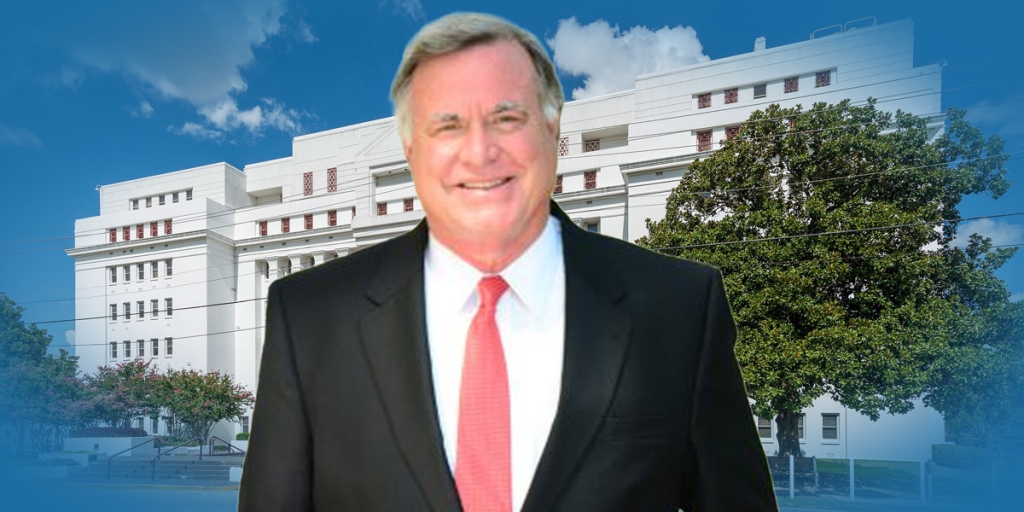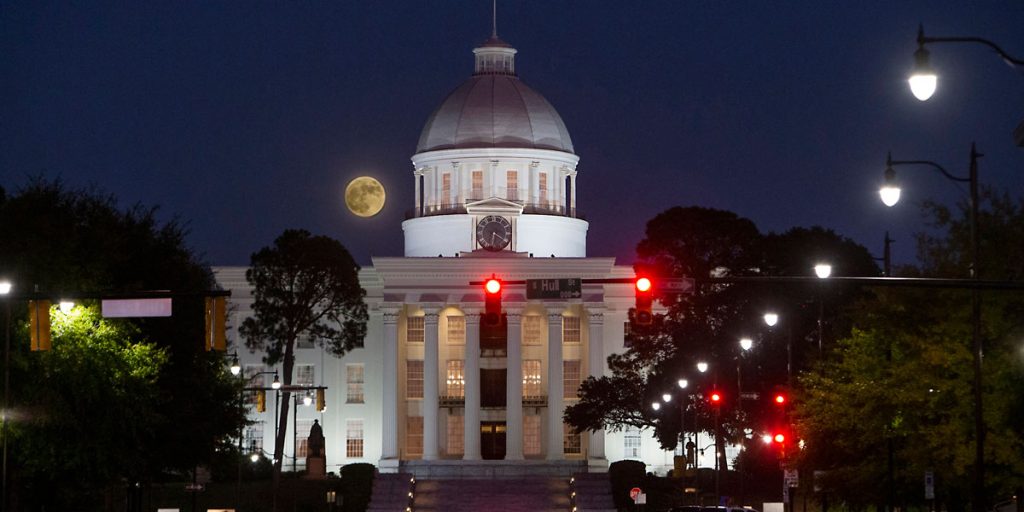
ENTERPRISE, Ala. — Alabama State Rep. Barry Moore (R-Enterprise) on Sunday added his opinions to the growing debate over what the state should do to address the shortfall in its General Fund Budget, which Senate General Fund Budget Chairman Arthur Orr (R-Decatur) predicts could be in the neighborhood of $260 million.
But unlike Gov. Bentley, who has suggested revoking some of the tax deductions Alabamians currently enjoy in an effort to bring in more revenue, Moore said he’d prefer doing away with the state income tax all together and moving entirely to a consumption tax.
Many conservatives have long advocated for a consumption tax, even on the federal level. The Fair Tax is the most widely known proposal. It would “replace all federal income taxes, payroll taxes, gift taxes, and estate taxes with a single broad national consumption tax” on new goods and services.
A host of free market economists have predicted that moving to a consumption tax would significantly boost economic growth. But in a tweet on Sunday, Moore pointed out another benefit many conservatives see in the consumption tax as it relates to one of the hottest debates currently raging at the national level, illegal immigration.
we need to combine budgets in our state do away w state income and go to a state consumption tax it's the only tax illegals pay #alpolitics
— Barry Moore (@RepBarryMoore) December 14, 2014
“Instead of illegal immigrants just getting a free ride, we could at least collect from them when they buy goods and services,” Moore said. “Right now, they’re driving on roads and taking advantage of government services and Alabama taxpayers are the ones who have to foot the bill.”
But Moore also sees added benefits for Alabama families.
“Alabamians would get to bring home more of their paychecks, since the state would no longer be withholding income taxes,” he said. “That gives middle class families more control over their budget.”
He does acknowledge, however, that there would be some challenges to crafting a system that could work for Alabama.
“We would have to look at big ticket items and adjust accordingly to keep consumers from going across state lines to buy them,” he said by way of example. “I know it would take a great deal of work, but it would not penalize working families the way the tax system does now. And I think it could ultimately be part of a larger solution to our General Fund Budget problems, as well.”
In Moore’s tweet, he also became the second legislator in as many weeks to advocate for combining Alabama’s budgets.
RELATED: GOP lawmaker says if Bentley wants to be ‘courageous,’ he should lead massive budget reform
Alabama is one of only three states in the country that operates out of two separate budgets — the Education Trust Fund (ETF), which funds the state’s education system, and the General Fund (GF) that funds everything else. As a result of the control the Alabama Education Association (AEA) had over Alabama’s state government for decades, the vast majority of the growth taxes are funneled into the ETF, often leaving the GF incapable of meeting its obligations.
Since combining the budgets would amend the Alabama Constitution, it would require a vote of the people, in addition to a bill passed by the Legislature. It would be a politically difficult move that would likely require the full-throated support of Gov. Bentley to pull off.
“The Governor has always supported the idea of combining the state budgets,” said Jennifer Ardis, Bentley’s communications director. But the Administration has not yet gotten into the specifics of the governor’s highly anticipated budget proposal.
Yellowhammer spoke to House Educated Budget Chairman Bill Poole (R-Tuscaloosa) on Sunday about the possibility of combining the budgets. Poole said that it could potentially be helpful, but only in the context of a much larger overhaul of the state’s current budget structure.
“I would only support merging the budgets as part of a comprehensive structural budget reform,” Poole said. “Siphoning off education dollars in order to prop up prisons and Medicaid in a vacuum doesn’t address any of the problems, but rather perpetuates the problem.”
In order for a push to combine the budgets to garner widespread support among legislative leaders, it would probably have to piggy-back on other major reforms. Potential ideas could including further government cuts; readdressing tax credits that create marketplace advantages; getting a better handle on the growing costs of Medicaid and prisons; and — perhaps most notably — un-earmarking.
88 percent of Alabama’s tax revenue is earmarked. That’s by far the highest percentage of any state in the country, and it leaves very little flexibility for lawmakers to increase government efficiency or to move money around to patch holes.
There will be many different ideas floated by lawmakers over the next several months before the 2015 legislation sessions begins in March. The Governor is expected to be the first out of the gate with a concrete proposal. But judging by the recent comments from Republican legislators, they’re hoping Bentley produces something bold that addresses the structural issues with the state’s budgets without sacrificing conservative principles.
Like this article? Follow me on Twitter and let me know what you think.
— Cliff Sims (@Cliff_Sims) December 3, 2014











